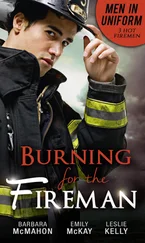Patrizia and Neva chatted while Roman took one of his breaks. Patrizia mentioned Angel, the family’s driver, and how he had told her just now in the car that he wanted to be a crane operator. He’d been learning how to do it.
Imagine that, dangling hundreds of feet above the sidewalk! said Patrizia. I’d be much happier driving a car.
Some people like to be high up, said Neva, looking out at the snow. Isn’t he from Quito? Maybe it reminds him of the mountains.
I suppose so, said Patrizia. Anyway, I’m going to say something to Steve, see if he can find something for Angel.
Steve loves Angel. He loves to talk to him in the car.
I know. He’ll miss him, said Patrizia.
—
Patrizia watched the snow out the window and lost herself for a moment in the churning wave of white, mesmerized by the way the flakes appeared to regenerate themselves in midair. In the middle of her life she seemed to be having not a crisis but an awakening. Things she had always ignored, blocked out, now rushed to the forefront of her mind like the spinning snow, like planets in the credit sequence of one of those blockbuster movies which her sons, or perhaps only Roman, enjoyed. She found herself noticing things, some beautiful, some ugly — the dreariest stores on the streets, ones with limp, frayed awnings; a dirty plastic spoon convulsing in a trash can; the grime washing up the reptilian sides of the white brick buildings on Third Avenue — that she had previously edited away. But now she did not have either the energy to look away or the desire. She wished she could say she wanted to take it all in, could proclaim that with age she had matured into a saintly sage with a compassionate approach to every sentient and nonsentient being. But she knew what was more likely: that time had depleted the urgent will to organize and edit her world. And so, the silver lining: she noticed more, took in a wider and deeper spectrum of experience.
Of course this had its pitfalls. What had been perfectly acceptable if somewhat dull swaths of life suddenly burst forth with vigor in a violently colorful manner, the way a puddle in the gutter can look at one moment blank and metallic and the next brilliantly aswirl with oily ribbons of pink and green and blue and orange, a pool of photo-filtered blood to jump over as you cross the street. These puddles were the blind spots that in her forties now bloomed with detail and discovery. She had never considered herself naïve, but people whom she had known for years and taken for trustworthy or at least mildly empathetic had turned out to be neither honest nor even decent. Individuals she had assumed were well meaning were not even nice. This wasn’t paranoia on her part, more a belated understanding of human nature, something that others had known much earlier, while she had been, presumably, learning things that they hadn’t. However, at times she suspected this might not have been the case. She might have just been naïve. Her ambition had convinced her and others that she had understood the world, but now she saw that she had only understood a tiny part of it. Now she saw more variety, more color, and more ugliness.
So she was not unaware that her husband had fallen deeply for Neva, that he was engaging in a romance with her, if not of the body, then of the mind, or of the heart, that is insofar as he had one, she thought, her foot kicking an invisible soccer ball as she bounced her ankle while she pondered the snow and her marriage. She was upset, jealous, angry, but at the same time unconcerned. This duality was made possible by her ability to compartmentalize and her extreme possessiveness. If he was a monster, at least he was her monster. She had no doubt of that. Whatever his feelings for Neva they were not the same as his feelings for his wife, Patrizia was sure of this. In her awakening she was discovering that nothing was black and white. It was all silvery gray, glinting, iridescent, like the puddles that held a multitude of color. If he was sleeping with Neva, who cared? If he was in love with her, who cared? Was he Neva’s husband? No. He was hers. And he was not about to leave her because quite simply he appreciated what she had to offer, even if it was not a meeting of souls. He appreciated her proprietary confidence, her aristocratic entitlement. He actually admired it and felt affection for it. He never ceased to be amused by what she had thought was her sophistication but which he had always realized was her superficial materialism and charm, like a flouncing girl in a fairy tale. She was a prize to him, a possession. And in this way Patrizia possessed him too, more inextricably than the way she owned the boots on her feet and the jewelry at her neck. Or at least she owned a part of him.
This is what Patrizia saw, understood, accepted, and found solace in: that Neva could never be owned by Steve. And so therefore Neva could never own him.
—
Roman was thrusting and spinning around in the middle of the room, in between the two women, playing Wii.
Oh well, sighed Patrizia, he’ll get over it. Angel’s been driving that car for a long time. If he wants to do something else, Steve should let him.
Yes, said Neva, I’m sure he will.
So, Patrizia said, turning her gaze to Roman who was now kneeling and sliding and twisting, how is it going with the homework?
—
That night Neva had a series of dreams. In one of them she was running, in another drowning, in another she had entirely forgotten who she was and someone was expecting her to explain herself. When she woke up, tormented, sweaty, twitching, she had the feeling that there was something urgent she was required to do, but she did not know what it was and she had a deadline. Gradually, as her heart slowed and her mind settled and she returned to her bedroom, she began to piece together the events of the day and to recall what had transpired between her and Steve and to understand why she was in this state of panic and dread.
She could not still herself completely. No matter how deeply she breathed or how many times she told herself that she was safe at this moment and that in any future moment Steve would be looking out for her, she could not untangle the terrible, writhing, screaming pain that lived behind her heart and slightly toward the middle of her back, between her shoulder blades, like one of those tumors that grows nails and teeth, screeching and clawing and insisting that it be allowed to survive, to live, and even to burst through her skin in some grotesque hatching. One instant she pictured it as a deformed squirming creature and the next she felt unbearable pity for this desperate helpless thing. Her pain. She held it. It quieted. The shrieking subsided. It did not go away, but it quieted.
The idea that she was going to return, if only as an observer, to the world that she had so narrowly escaped seemed unreal and impossible at first but slowly formed a kind of sense in her mind and she was able to encompass the thought without it entirely overwhelming her. She felt herself at some inaccessible height, above everyday occurrences, viewing her life from a tremendous distance, seeing patterns and repetitions, variations on a theme, and she felt an enormous tenderness for her tiny being, hiking up and down the mountain ranges of her experiences, tracing the shape of a steep and jagged EKG, not unlike the beating of her own irregular heart. She felt no happiness or peace or torment or anger, just an awareness that the fear she had felt on behalf of this being, herself, was a part of her life. It would never go away, she realized. No matter what she did she would carry this fear with her, so she might as well do something with it, use it, take some action. She would do what he asked. She felt a release from the lingering suffering of her nightmares and was able to fall back to sleep.
Читать дальше












